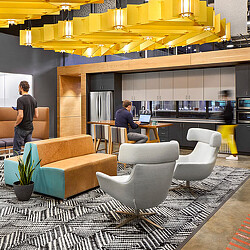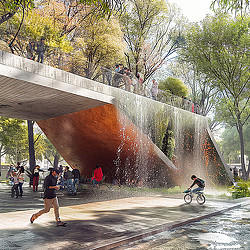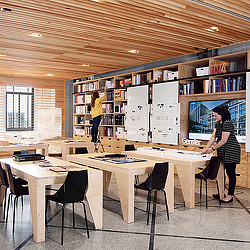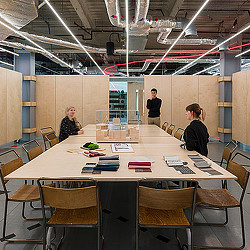Imagining a Smart Recycling Reward System That Transforms the Way We Look at Trash
By transforming recycling into a rewarding, interactive process, we can inspire collective action to revolutionise waste management.
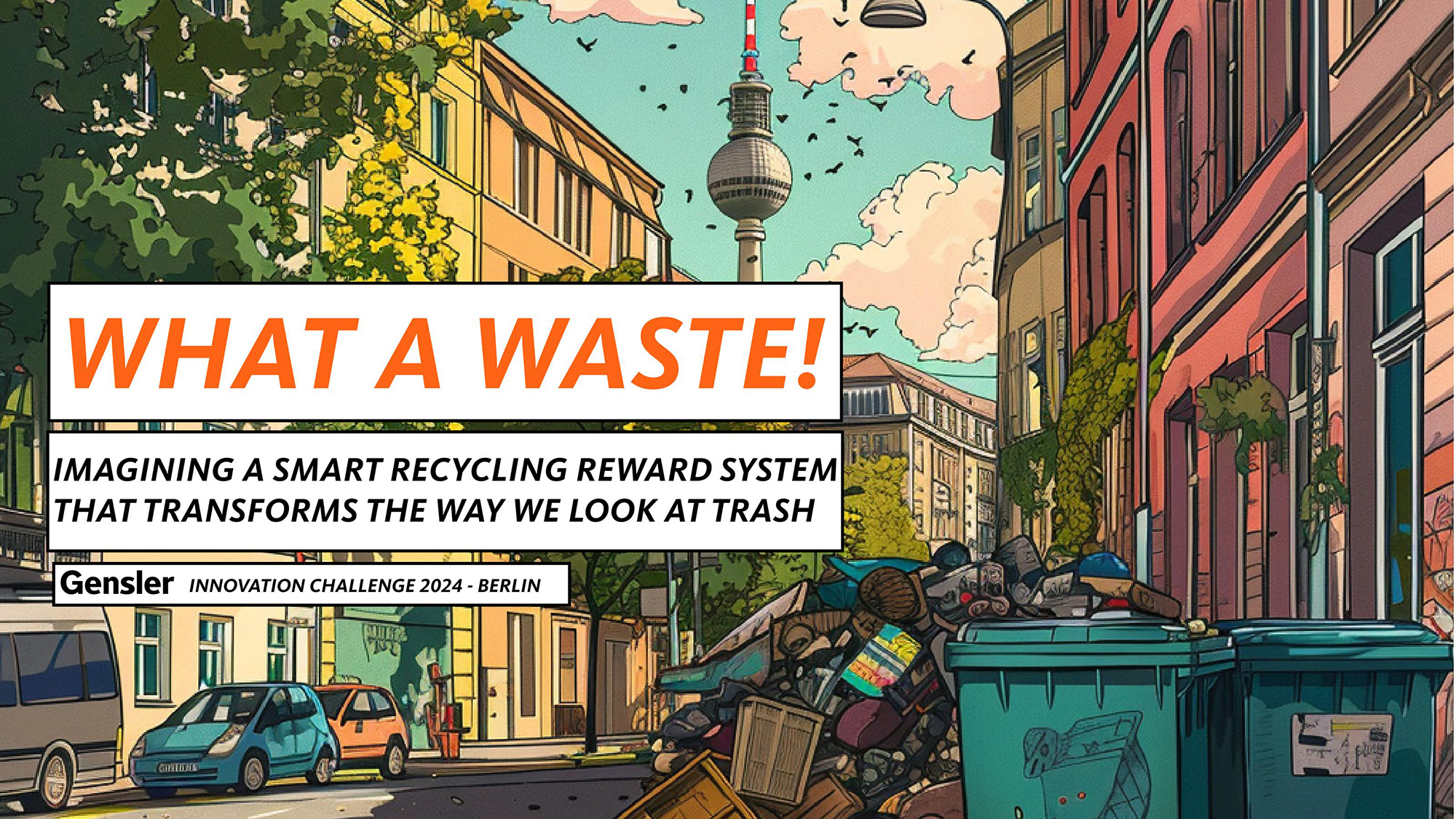
In the realm of architecture and design, sustainability is not just a buzzword; it’s a critical component of our responsibility towards preserving natural resources and protecting the environment to enhance the well-being of future generations. Despite widespread awareness, recycling rates remain low, and our current systems often fail to engage the public effectively. What if we could transform the way we view trash, making recycling not only efficient but also rewarding? Enter the smart recycling reward system, a concept poised to revolutionise waste management.
Today’s recycling systems face several challenges: inefficiency, low participation rates, and contamination of recyclables. Many people are not motivated to recycle correctly, often due to a lack of immediate, tangible benefits. This inefficiency not only worsens environmental degradation but also represents a missed opportunity to leverage recyclable materials fully.
We have been inspired by Germany’s Bottle Deposit System, established in 2003, which has effectively promoted plastic and glass recycling while providing economic benefits, particularly for those in need, and fostered a more circular economy. A low-income individual could earn an average of 5 euros per day by collecting bottles off the streets through the current plastic deposit system. However, this system is limited to a network of machines, primarily located in supermarkets, where users return bottles in exchange for paper vouchers that can be used for supermarket purchases or redeemed for cash.
For this reason, Gensler’s Berlin office imagines a world where recycling becomes an integral part of our daily routine, driven by a system that rewards responsible behaviour at different scales. Here’s how it could work: placed throughout the city, smart bins equipped with sensors and AI identify and sort recyclables automatically. Citizens can dispose of their trash in these bins, scanning a QR code or using a mobile app to register their activity. Correct disposals would make users earn points, which could be accumulated and redeemed for various rewards. These points could be used for tax refunds, contributing to living costs, or obtaining credits for specific materials, which could be utilised to design custom items.
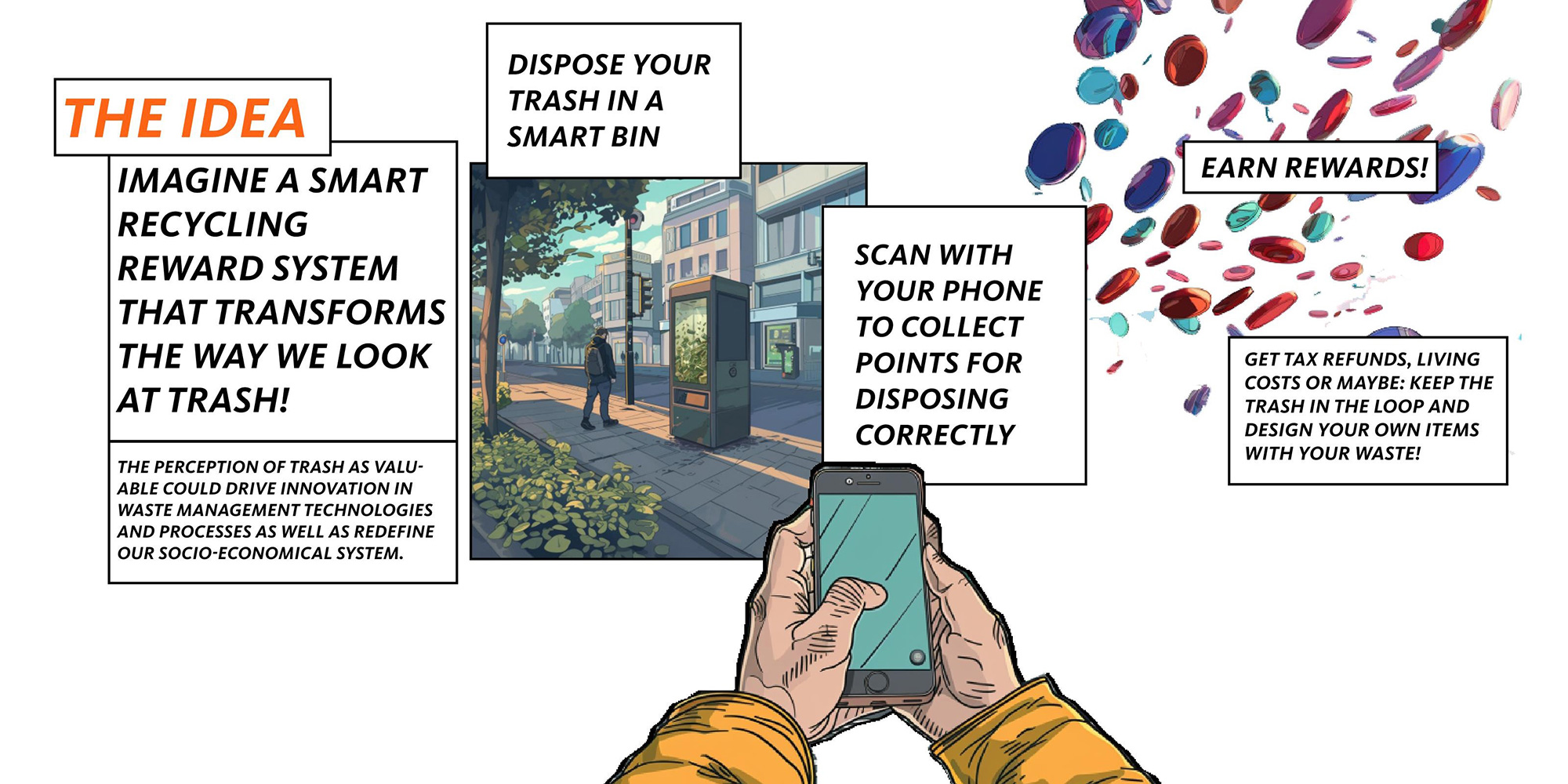
This system fosters a closed-loop recycling process where plastic, glass, paper, textiles, or even bio-based items are collected, processed, and transformed into new products locally. This minimises waste and maximises resource utilisation. Integrating 3D printing hubs — a new architectural typology — into cities can stimulate community economic activity, support local businesses, and create jobs through localised fabrication facilities. Consumers can customise their furniture and other items, promoting a sense of ownership and personal connection to the products they help create.
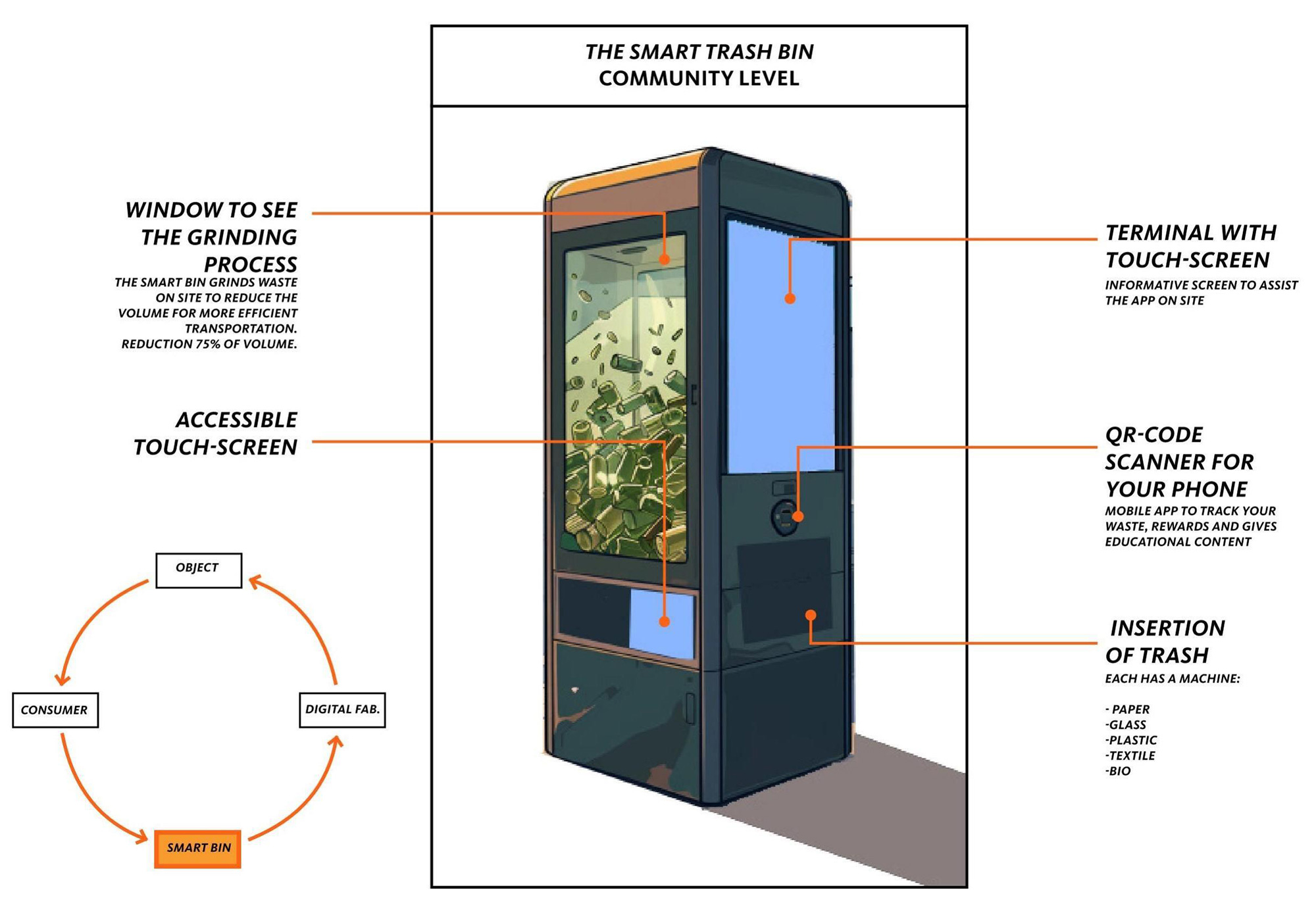
The system can potentially educate consumers about the journey of their recycled materials, enhancing awareness about the environmental impact of responsible waste management. By localising production and recycling, the system reduces the carbon footprint associated with transporting raw materials and finished products over long distances. Directly contributing to new product creation through recycling provides positive reinforcement and tangible incentives, encouraging ongoing participation.
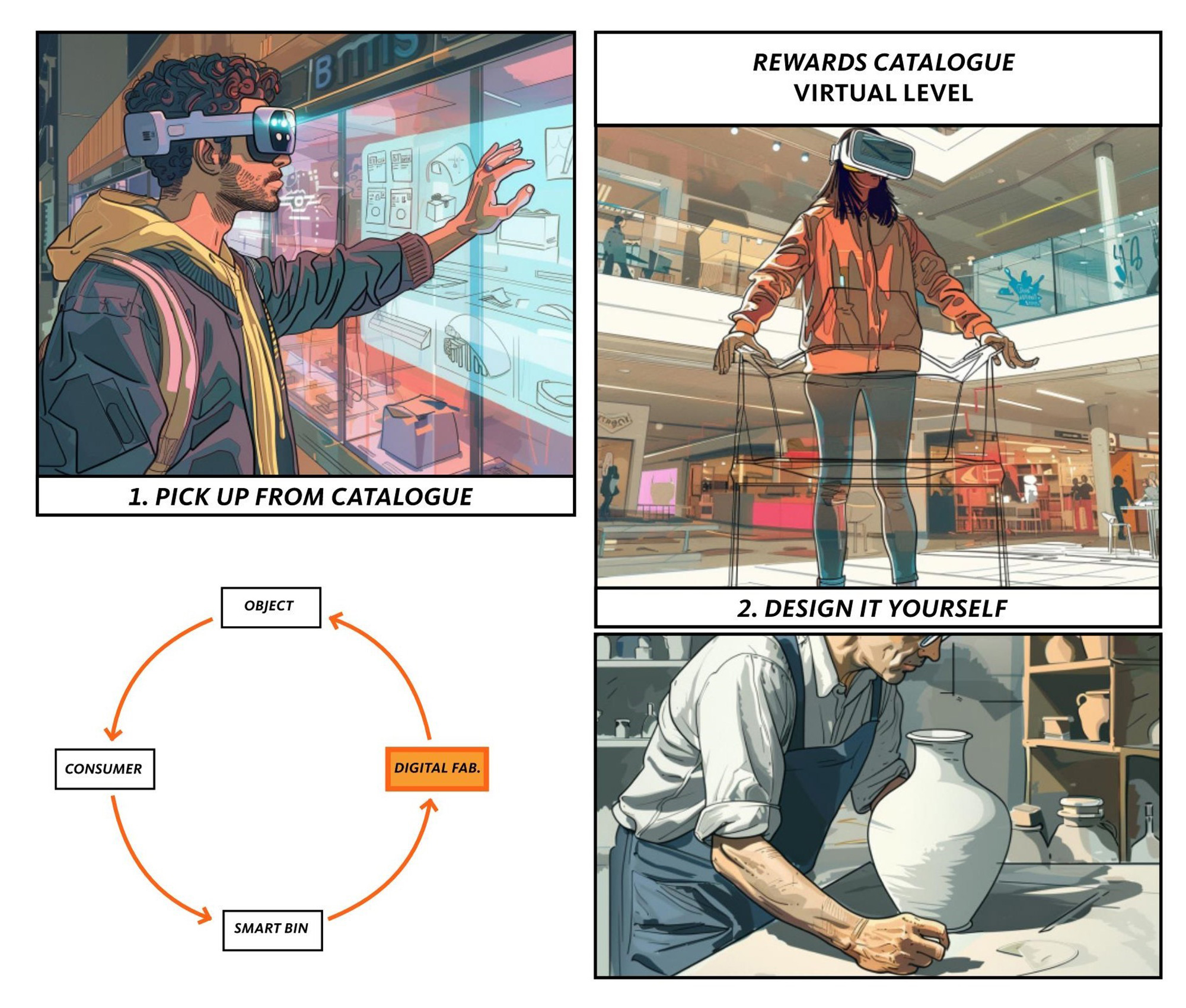
The benefits of such a system are multifaceted. Increasing recycling rates and reducing contamination decreases landfill waste and carbon footprints, conserving natural resources and reducing greenhouse gas emissions. Improved recycling efficiency can lower municipal waste management costs and drive economic growth by supporting local businesses and industries. Gamifying recycling makes it an engaging activity, fostering community spirit and shared responsibility. Educational elements further promote long-term sustainable behavior.
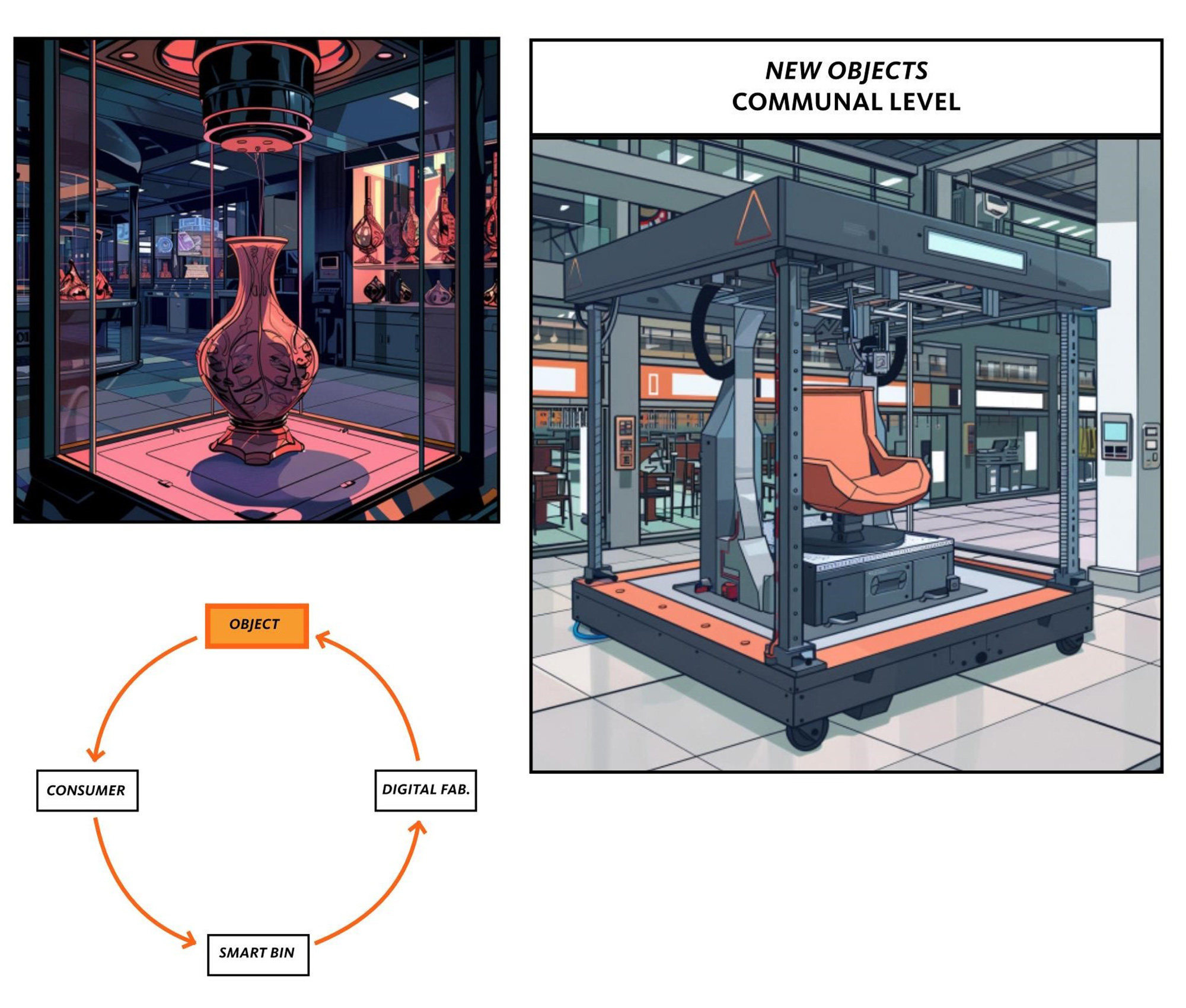
While promising, implementing such a system poses challenges, including high initial costs, privacy concerns, and ensuring equitable access. Solutions might include phased rollouts, public-private partnerships, and robust data protection measures. Community engagement and educational campaigns will also be crucial to achieving widespread adoption and sustained participation.
Innovative waste management systems worldwide offer valuable insights. Germany’s deposit return scheme for beverage containers results in high return rates. San Francisco’s high-tech recycling bins utilising AI have significantly improved waste sorting. South Korea’s pay-as-you-throw system has dramatically boosted recycling rates. These examples highlight the benefits of smart recycling reward systems, providing inspiration for new implementations. However, these examples lack a holistic approach that is seamlessly integrated into society.
For our society as a whole, integrating a smart recycling reward system represents a powerful step towards sustainability, while also representing a challenge for designers that could provide multiple opportunities. Such systems enhance waste management efficiency, support local economies, and engage communities in meaningful ways. By transforming recycling into a rewarding, interactive process, we can inspire collective action and pave the way for a greener future.
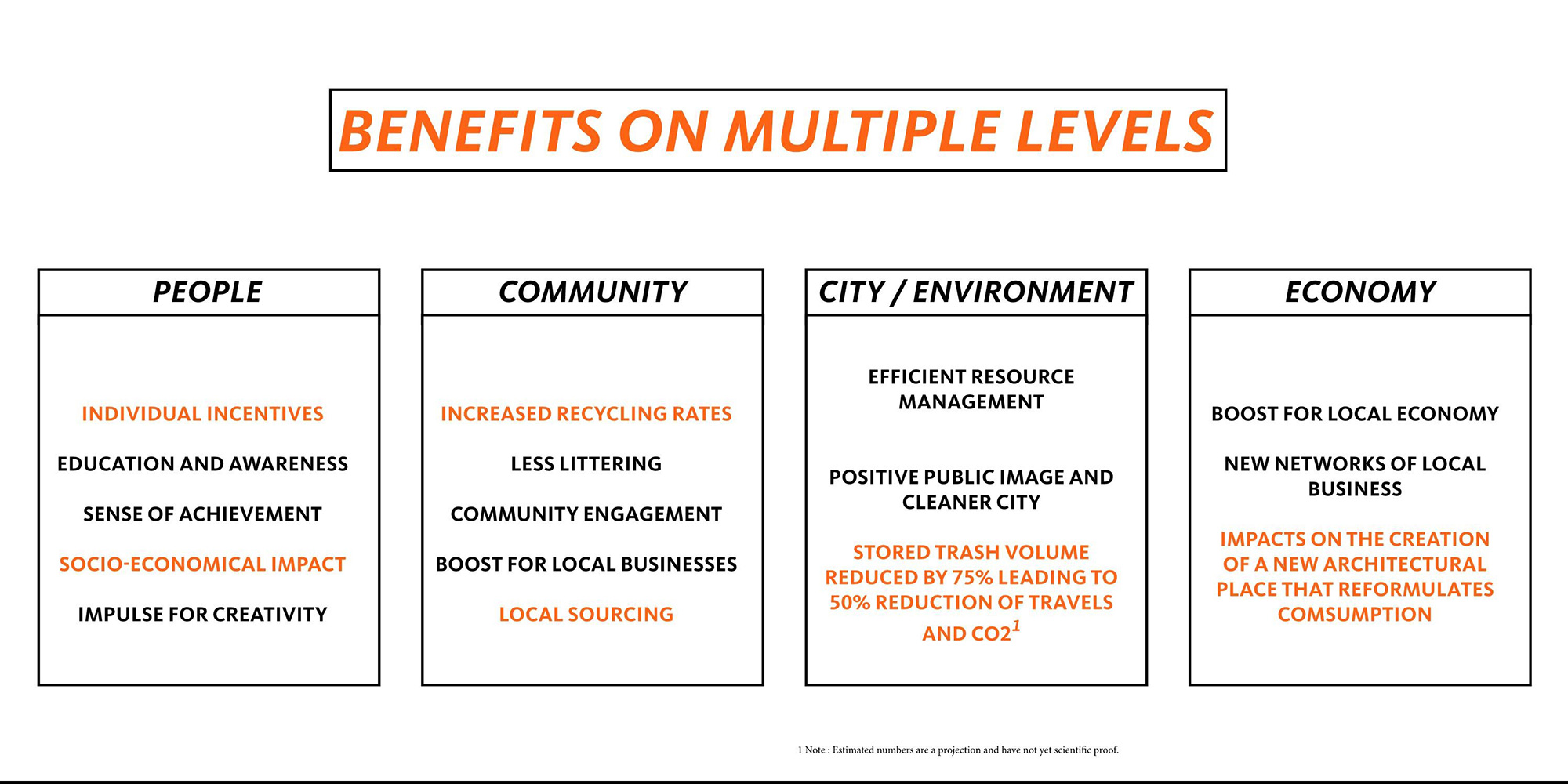
This idea, developed by Gensler’s Berlin office, was selected as the European Region winner for Gensler’s Innovation Challenge 2024, an internal competition where Gensler offices iterate innovative concepts to tackle solutions to the world’s most complex problems.
At Gensler, we are committed to pioneering sustainable solutions and innovative designs. We believe that implementing smart recycling reward systems can significantly impact environmental conservation, resource efficiency, and the way we look at design, architecture, and our cities. Let’s seize this opportunity to rethink our approach to trash and embrace a smarter way to recycle.
Contributors to this project include: Laura Weber, Martin Trawinski, Eliza Lasek, Nestor Ramos, Lukasz Platkowski, and Amanda Simó.
For media inquiries, email .


